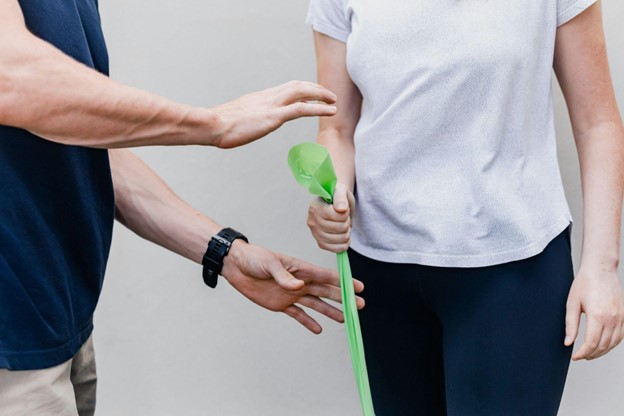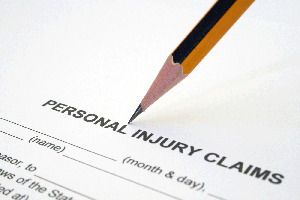- Set realistic recovery goals and track progress to stay motivated and focused on achieving long-term results.
- Follow a personalized rehabilitation plan with professional guidance to ensure safe and effective progress.
- Incorporate strength-building exercises, flexibility routines, and holistic lifestyle changes to support sustainable recovery.
- Regularly consult experts, adapt your strategies, and draw inspiration from success stories to maintain momentum and avoid setbacks.
Recovering from physical setbacks can feel like a daunting journey. Whether it's due to an injury or extended inactivity, the path to regaining strength and mobility often comes with challenges. But with the right strategies and mindset, you can navigate this journey successfully and reclaim your active lifestyle.
In this guide, you'll learn actionable steps to build a solid recovery plan, improve strength, and boost confidence. These tips are designed to help you take control of your rehabilitation process and achieve sustainable results. If you've been wondering how to get back on track, this is the roadmap to start your journey.
Understanding Recovery Goals
Setting recovery goals is the foundation of any successful rehabilitation process. Goals provide direction, keep you motivated, and help you measure your progress over time. However, it's essential to ensure these goals are realistic and tailored to your current abilities and future aspirations.
Start with short-term objectives, such as improving range of motion or completing low-intensity exercises without discomfort. These milestones can build momentum and confidence. Long-term goals, like returning to a specific sport or activity, provide a bigger picture to work towards.
Patience is key here—rushing can lead to setbacks or even reinjury. Recognize that recovery is a gradual process, and every small improvement is a step in the right direction. Surround yourself with a support system, whether it's friends, family, or a professional team, to stay focused and motivated throughout your journey.
Essential Tips for Effective Rehabilitation
Rehabilitation requires a blend of discipline, expert guidance, and a plan tailored to your unique needs. Working with a qualified professional can help you create a program designed to address your specific challenges and goals. From understanding your injury to crafting a progression plan, their insights are invaluable.
Including exercise rehabilitation Melbourne CBD in your journey ensures that your plan is both accessible and effective, especially with the expertise available in the area. Professional support not only helps you avoid common pitfalls but also ensures that you're progressing at a safe pace.
Consistency is another vital factor. Sticking to your prescribed exercises and routines, even when progress feels slow, is critical for long-term success. Track your milestones, whether it's increased strength, better flexibility, or reduced pain. These indicators will remind you that each effort contributes to your recovery, bringing you closer to your goals.
Building Strength and Preventing Future Injuries
One of the key goals of rehabilitation is not just recovery but also building resilience to prevent future injuries. Strengthening your body gradually and safely is a cornerstone of this process. Focus on low-impact exercises that target specific muscle groups while minimizing strain. These can include bodyweight movements, resistance band exercises, or water-based workouts that offer support and control.
Improving flexibility and stability is equally important. Stretching routines and balance exercises, such as yoga or tai chi, can help enhance your range of motion and overall body control. These activities can also improve coordination, reducing the likelihood of re-injury.
To maintain progress, ensure you're incorporating variety into your routines. This not only keeps things interesting but also helps your body adapt to different challenges. Remember, consistency and gradual progression are your best allies. As you get stronger, consider consulting with a professional to adjust your program and keep your recovery on the right track.
Lifestyle Adjustments for Sustainable Recovery
Recovery doesn't stop at physical exercises; it requires a holistic approach that includes lifestyle adjustments. Proper nutrition plays a significant role in healing, as your body needs adequate fuel to repair tissues and rebuild strength. Incorporate nutrient-dense foods such as lean proteins, whole grains, fruits, and vegetables into your meals to support recovery.
Rest and recovery periods are just as vital. Overtraining or neglecting rest can impede progress and lead to burnout. Aim for quality sleep each night, as this is when your body does most of its healing and rebuilding. Developing a consistent sleep schedule can enhance both physical recovery and mental clarity.
Stress management is another critical factor in sustainable recovery. High stress levels can negatively impact your body's ability to heal and recover. Incorporate stress-reducing activities like mindfulness meditation, journaling, or spending time in nature to maintain a balanced and positive mindset.
By addressing these lifestyle components, you'll not only recover more effectively but also set a foundation for long-term health and well-being.
Expert Advice for Long-Term Success
When it comes to sustainable recovery, expert guidance can make all the difference. Consulting with professionals, such as physiotherapists, fitness trainers, or sports therapists, ensures that you're following a plan tailored to your needs and goals. Their expertise can help you avoid common mistakes, such as overtraining or using improper techniques.
Regular check-ups or assessments are equally important as they provide valuable feedback on your progress. These sessions allow professionals to identify areas needing improvement or adjust your program as your strength and mobility increase.
Inspiration from success stories can also be incredibly motivating. Whether it's athletes who have returned to peak performance or individuals who have reclaimed an active lifestyle, these examples demonstrate what's possible with dedication and the right support. By following expert advice and learning from others' journeys, you'll stay on track and maintain long-term success.
Conclusion
Recovery is a journey that requires patience, persistence, and the right strategies. By setting realistic goals, staying consistent with your plan, and incorporating holistic lifestyle adjustments, you'll build a solid foundation for regaining your strength and confidence.
Remember, every small improvement brings you closer to your ultimate goal. With dedication and expert support, the path to a healthier and more active future is well within your reach. It's time to take the first step and get back in the game.






